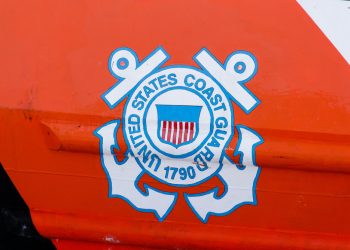In anticipation of an active 2021 tropical cyclone season, USCG is reminding owners and operators of offshore units of the requirement to notify the Coast Guard when these units are relocated.
This is specified through a new Marine Safety Information Broadcast 21-03 titled “Reporting Requirements and Mooring Arrangements for MODUs and Vessels Completing OCS Activities Intending to Cold Stack” by the US Coast Guard Eighth District Outer Continental Shelf Officer in Charge.
[smlsubform prepend=”GET THE SAFETY4SEA IN YOUR INBOX!” showname=false emailtxt=”” emailholder=”Enter your email address” showsubmit=true submittxt=”Submit” jsthanks=false thankyou=”Thank you for subscribing to our mailing list”]
The requirements are specifically addressed at the owners and operators of Mobile Offshore Drilling Units (MODU) and of other vessels completing Outer Continental Shelf (OCS) activities (e.g. accommodation vessels, support vessels, pipelay vessels, and others described in 33 CFR 146.401).
It is critical for the Coast Guard to have current and accurate vessel location information during heavy weather events. Inaccurate and incomplete information has delayed Coast Guard response efforts in the past, and could do so in the future,
…the Coast Guard said.
When preparing to “cold stack” a MODU offshore, USCG recommends owners and operators to ensure these arrangements are reviewed by a naval architect or professional engineer and to consider the following, at a minimum:
- potential heavy weather impacts, to include storm surge;
- proximity to shipping channels, OCS facilities and pipelines;
- oil or hazardous materials remaining onboard;
- lighting and sound signals;
- emergency response and recovery procedures.






























































